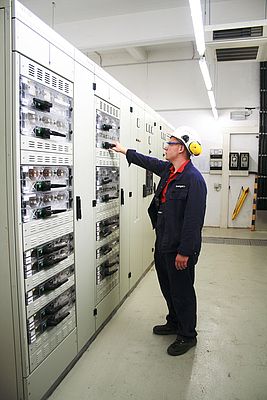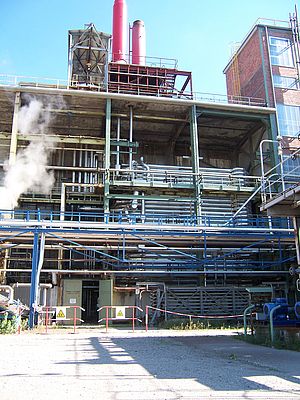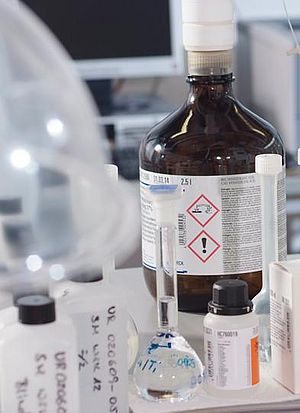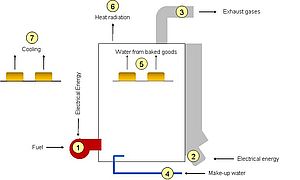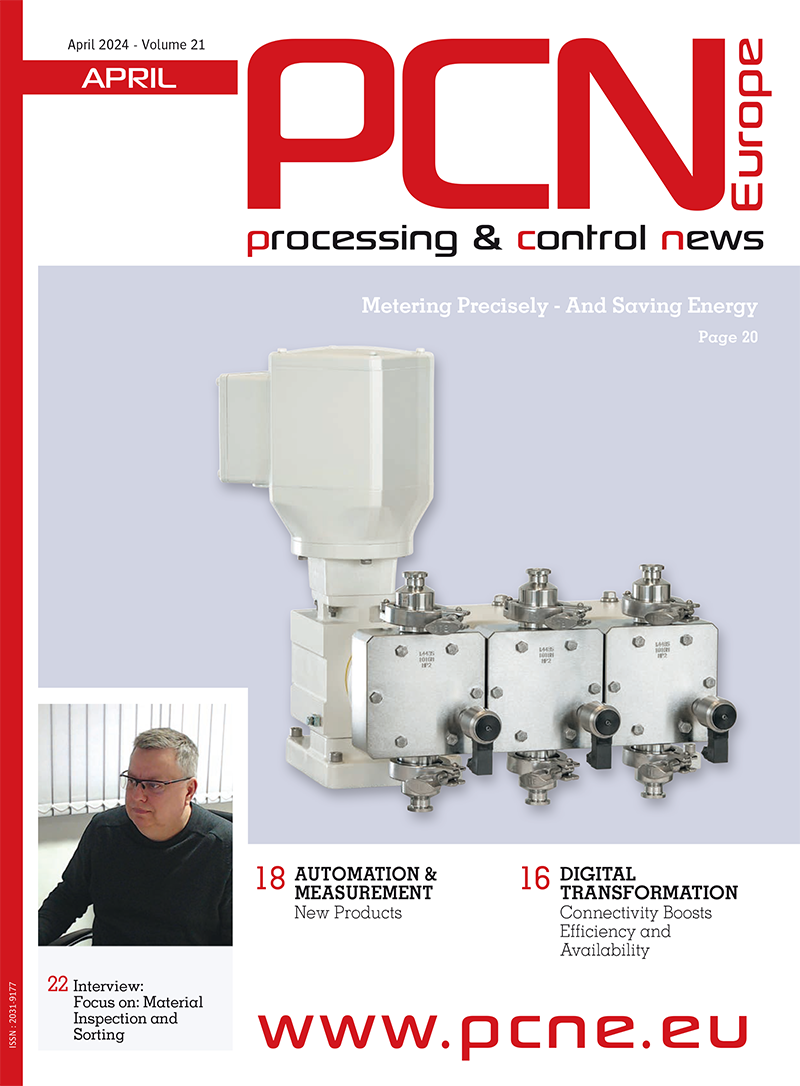Energy input is one of the key cost factors in industrial polymerisation processes. The case study of Innospec Leuna describes how the energy saving potential of a high-pressure polymerisation system was harnessed.
The speciality chemical company Innospec Leuna commissioned TÜV SÜD Industrie Service to conduct a detailed study of its energy supply and is currently establishing a cutting-edge energy management system in its production division.
In 2011, the increase in 'reallocation charges' alone under Germany's Renewable Energy Sources Act will generate costs roughly €320 million above those of 2010 for the German chemical industry. Energy saving potential not only provides ecological benefits, but is also becoming increasingly relevant as a factor in competition. The first step towards exploiting energy saving potential is to conduct in-depth analyses of energy supply and energy input and to establish a modern energy management system aimed at streamlining processes and saving resources. Screening of the individual processes is indispensable for developing and implementing cost-effective optimization measures. Cross-industry expertise proves a major benefit in this context.
Case study: Innospec Leuna
TÜV SÜD Industrie Service supported Innospec Leuna in its improving energy efficiency and planned the tailored optimisation of its high-pressure polymerisation plant. Innospec Leuna is a member company of international Innospec Specialty Chemicals Inc., which operates in 23 countries with over 800 employees. At its location at LEUNA Chemical Park in Saxony-Anhalt, the speciality chemical company operates an array of plants including a high-pressure polymerisation plant for the production of ethylene-based products such as PE waxes, ethylene vinyl acetate (EVA) copolymers and diesel additives. Since 2000, the company has invested over 20 million euros in improving its performance and competitiveness.
To stay competitive, production facilities and processes must be continuously modernised and optimised in keeping with the state of the art. On closer inspection, almost every facility or system offers untapped energy saving potential. At the polymerisation plant at Leuna, for example, the experts identified excessive electricity and steam consumption, pushing the system's energy costs slightly above the industry average. Cooperating closely with the engineers at Innospec, the TÜV SÜD experts analysed both time-specific energy consumption and grid quality. Individual systems with noticeable peak consumption and steam management were subjected to detailed assessment.
Screening of each process stage
In a first step, the experts carried out in-depth screening of the energy supply and energy input for each stage of the process. One of the four biggest energy consumers in the polymerisation plant at Innospec Leuna is the hyper compressor. It is used for the initial processing of the raw materials and consumes over 50 per cent – and thus the majority – of energy. The other three big energy consumers comprise the intermediate compressor station, the cooling circuits and various individual consumers with over ten kW connected load, which were grouped together for the purpose of screening.
In a second step, the experts used the compiled data to determine possible potential for making savings and suggest improvement measures, including new, especially energy-efficient drive systems and motors. Further measures included control of the volume flow and pressure of the cooling circuit pumps and utilisation of excess low-pressure steam. An energy management system (see info box) is another key factor for the long-term and systematic reduction of operating costs and is currently being implemented. As a result, in the future online measurements of energy consumption will be possible and may be interpreted and used as the basis of cost-benefit analyses.
Cost-effective implementation
Before the experts developed a custom energy strategy, they carried out an in-depth review of all individual measures, investigating whether these measures were technically and economically feasible. In the case study on hand, the majority of these measures were implemented in full or in part at manageable investment costs of around 200,000 euros.
As a result of these implemented measures, all auxiliary units will now be switched off completely whenever production is interrupted. During servicing and maintenance and within the scope of any necessary investments in replacement and new equipment, individual units such as drive systems and motors will be systematically replaced by new, more energy-efficient items. In addition, the available process control system will be used to control individual units in accordance with their energy consumption. The TÜV SÜD experts also check the extent to which the quality of the low-pressure steam that is a by-product of the production process may be improved to use the steam in an energy-efficient manner.
Result: The optimised production process saves over five per cent of energy costs per year. The ultra-modern energy management system which is currently being implemented will help to identify and exploit further energy saving potential in the future. According to the energy efficiency experts savings of between three and five per cent may be expected. In view of soaring energy costs, even minor savings are important provided they can be implemented cost-efficiently. The company thus not only benefits from a sustainable reduction in energy consumption, but also from improved resource efficiency
By Dr Michael Bunk, TÜV SÜD Industrie Service and Dr Silvio Kammer, Innospec Leuna
Potential energy savings
in the production of ethylene products
- by TÜV Süd Industrie Service GmbH
- March 11, 2011
- 7401 views


